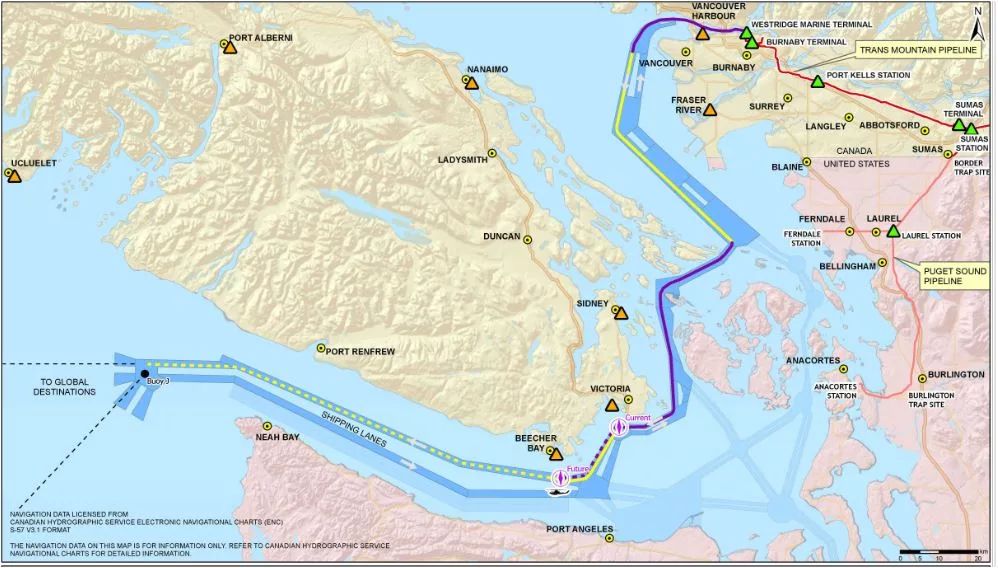
The Seattle Times reports a significant increase in oil tanker traffic is coming to our local waters in the Salish Sea with the completion of the Trans Mountain Pipeline expansion in British Columbia.
The project triples the volume of Alberta crude oil the pipeline can carry to an export terminal in Burnaby near Vancouver, British Columbia. The facility now sends out an average of five loaded tankers per month, and the expansion aims to raise the pace to one vessel per day. The oil-filled ships pass by the Olympic Peninsula as they head out to sea.
Increased oil spill risks in shared waters, disturbances to endangered orcas and other whales and climate change impacts are among the worries the pipeline expansion has stoked here in Washington. The Canadian project inspired repeated protests from Puget Sound tribes, Gov. Inslee and Attorney General Bob Ferguson, but they were all powerless to stop it.
The operator of the Canadian government-owned pipeline, Trans Mountain Corporation, contends expanded oil exports can be done responsibly. Canadian energy regulators conditioned the project’s approval on a host of added safety measures.
Trans Mountain said it expects the enhancements to raise the level of care and safety during tanker transits “to well above globally-accepted shipping standards.”
The company said on its website “Trans Mountain has loaded marine vessels with oil at the Westridge Marine Terminal since 1956 without a single spill from tanker operations”.
A corporate spokesperson said via email Thursday that the first ship to export crude oil from the expanded pipeline was expected to load during the second half of May.
(Map courtesy of Trans Mountain Corp.)
